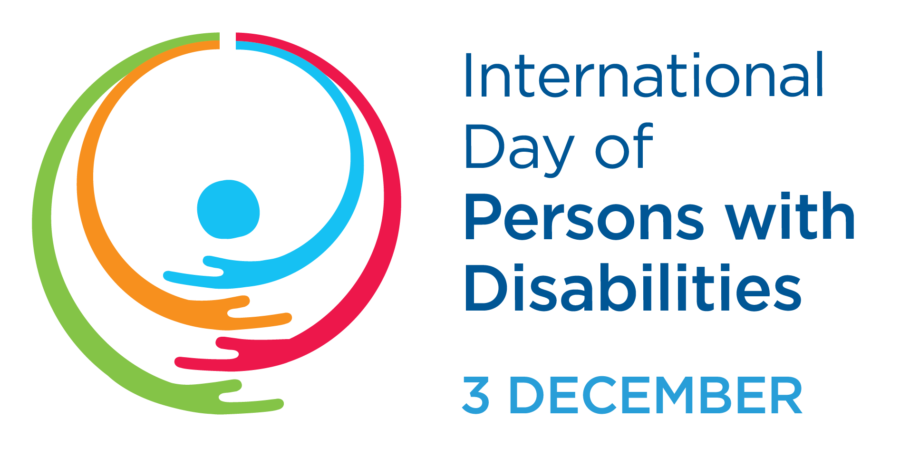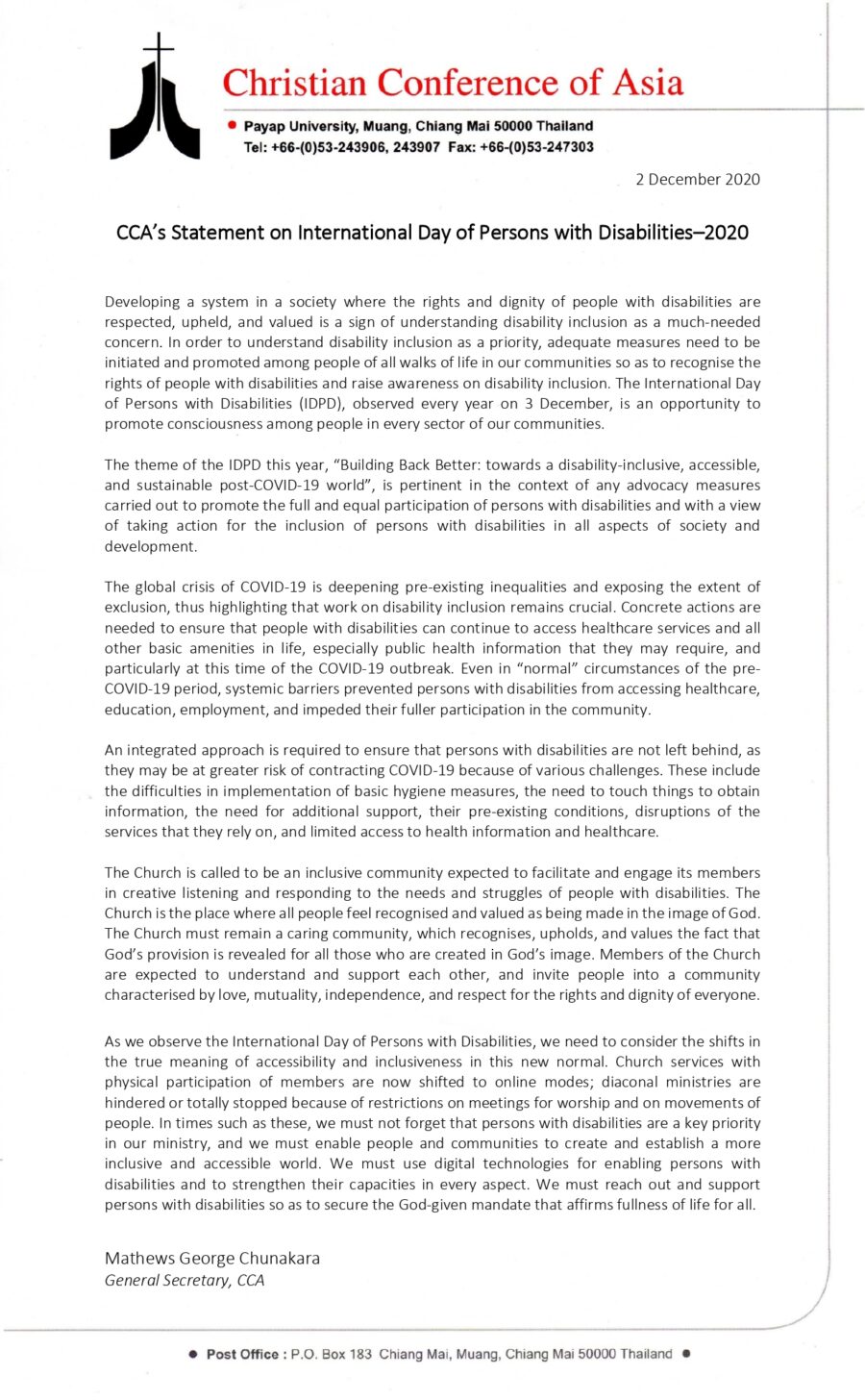CCA advocates for disability inclusion in post-COVID-19 world on International Day of Persons with Disabilities–2020

CHIANG MAI: A public statement released by the General Secretary of the CCA, Dr Mathews George Chunakara, on the occasion of the International Day of Persons with Disabilities (IDPD)–2020, advocated for disability inclusion to be inculcated in the design of the post-COVID-19 world.
The General Secretary stated that the theme of IDPD–2020, “Building Back Better: towards a disability-inclusive, accessible, and sustainable post-COVID-19 world”, was “pertinent in the context of advocacy measures carried out to promote the full and equal participation of persons with disabilities and with a view of taking action for the inclusion of persons with disabilities in all aspects of society and development.”
Dr Mathews George Chunakara called upon the churches to listen to the people with disabilities in their communities and respond to the unique needs that have emerged during the COVID-19 pandemic: which include disruptions of services they rely on, limited access to healthcare and information, the difficulties in implementation of hygiene measures, the need to touch things to obtain information, and the need for additional support, among others. He also asked to “reconsider the shifts in the true meaning of accessibility and inclusion in the new normal.”
The full text of the CCA General Secretary’s statement on the International Day of Persons with Disabilities (IDPD)–2020 can be found below:











